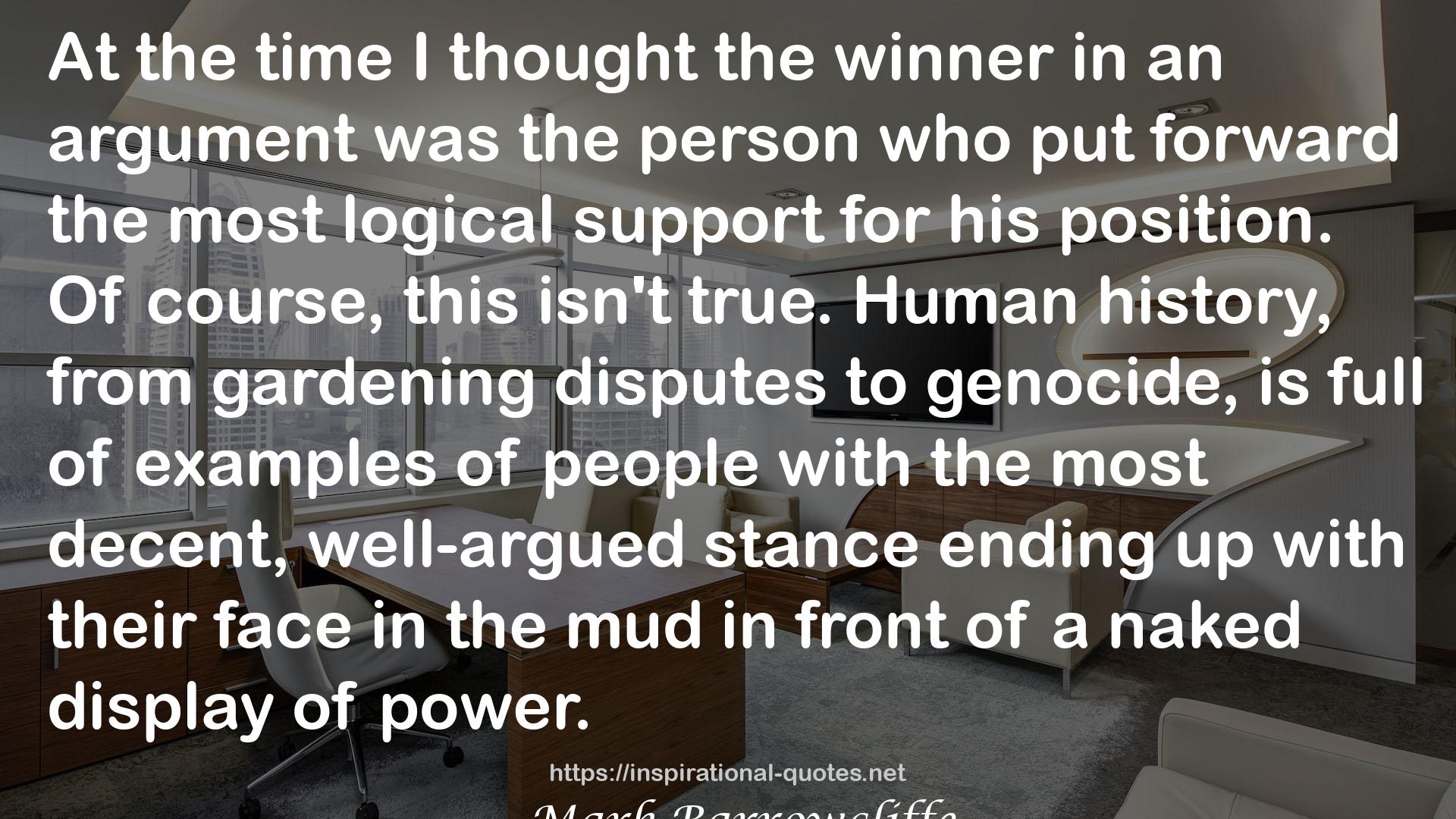Mark Barrowcliffe QUOTES
6
" Weirdly, D&D didn't encourage my leanings towards trying magic of my own at all. In fact, it frustrated them. Even the most pompous and ambitious historical magicians, from the Zaroastrian Magi through John Dee, Francis Barrett and Aleister Crowley, never claimed to be able to throw fireballs or lightning bolts like D&D wizards can. So D&D was never going to feed the fantasies of practising magic in the real world. That is all about gaining secret knowledge, a higher level of perception or inflicting misfortune or a boon on someone rather than causing a poisonous cloud of vapor to pour from your fingers (Cloudkill, deadly to creatures with less than 5 hit dice, for those who are interested). The game, as we played it, just doesn't support the occult idea of magic.
In fact, it might even be argued that, by giving such a powerful prop to my imagination, D&D stopped me from going deeper into the occult in real life. I certainly had all the qualifications—bullied power-hungry twerp with no discernable skill in conventional fields and no immediate hope of a girlfriend who wasn't mentally ill. It's amazing I'm not out sacrificing goats to this day. "
7 " This, since junior school, had been virtually my only experience of women—as fantasy figures. Reading about women in fantasy novels had set me an even more unrealistic point of view. The Lord of the Rings doesn't help, with its sexless visions of elf maidens who may as well be speaking paintings, and neither does other fantasy literature, where women seem to exist solely to be rescued or slept with. The men they want are sorcerer-kings, doomed warriors or deadly assassins. I think the idea that women might fancy good-looking, well-adjusted men who are nice to them is too much for the average fantasy-head to bear. "

